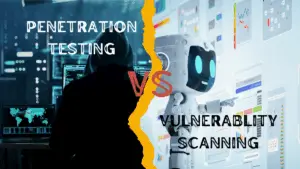People are always mystified by how hackers break into major networks like Target, Hannaford, Sony, (government networks included), etc. They always seem to be under the impression that hackers have some elite level of skill. The truth is that it doesn’t take any skill to break into most networks because they aren’t actually protected. Most network owners don’t care about security because they don’t perceive the threat as real. They suffer from the “it won’t ever happen to me” syndrome.
As a genuine penetration testing company we take on dozens of new opportunities per month. Amazingly, roughly 80% of businesses that request services don’t want quality security testing, they want a simple check in the compliance box. They perceive quality security testing as an unnecessary and costly annoyance that stands in the way of new revenue. These businesses test because they are required to, not because they want to. These requirements stem from partners, customers, and regulations that include but are not limited to PCI-DSS, HIPAA, etc.
Unfortunately these requirements make the problem worse rather than better. For example, while PCI requires merchants to receive penetration tests it completely fails to provide any effective or realistic baseline against which to measure the test results. This is also true of HIPAA and other third party testing requirements. To put this into perspective, if the National Institute of Justice set their V50 or V0 standards in the same manner then it would be adequate and acceptable to test bulletproof vests with squirt guns. Some might argue that poor testing is better than nothing but we’d disagree. Testing at less than realistic levels of threat does nothing to prevent the real threat from penetrating.
Shoddy testing requirements and a general false sense of security have combined to create a market where check in the box needs take priority over genuine security. Vendors that sell into this market compete based on cost, free service add-ons and free software licenses rather than quality of service and team capability, and price illogically based on IP count. Most testing vendors exacerbate the problem because they falsely advertise compliance testing (check in the box) services as best quality. This creates and perpetuates a false sense of security among non-security expert customers and also lures in customers who have a genuine security need.
The dangers associated with this are evidenced by the many businesses that have suffered damaging compromises despite the fact that they are in compliance with various regulations. The recent Target breach (certified as PCI compliant by Trustwave) is just one high-profile example. Target’s former CEO, Gregg Steinhafel was quoted saying “Target was certified as meeting the standard for the payment card industry (PCI) in September 2013. Nonetheless, we suffered a data breach”. Another high-profile example is the Hannaford breach (Rapid7’s customer at the time) back in 2008. Hannaford, like Target, claims that they too were PCI compliant.
It’s our responsibility as security experts to deliver truth to our customers rather than to bank on their lack of expertise. Sure we’re in this to make money but we also have an ethical responsibility. If we take the time to educate our customers about the differences between compliance testing and genuine penetration testing and they still select compliance testing then that’s fine (its their risk). But if we lie to our customers and sell them compliance testing while we assert that it’s best in class then we should be held responsible. After all, it’s our job to protect people isn’t it?
The irony is that Compliance testing typically cost more than genuine penetration testing because it uses an arbitrary count based pricing methodology. Specifically, if customer has 10 IP addresses but only 1 of those IP addresses is live the customer will still be billed for testing all 10 IP addresses. Genuine penetration testing costs less because it uses an Attack Surface Pricing (ASP) methodology. If a customer has 10 IP addresses and only one is live then ASP will identify that and the customer will only be charged for that 1 IP. Moreover, the customer will be charged based on the complexity of the services provided by that one IP.
If the Return on Investment (RoI) of good security is equal to the cost in damages of a single successful compromise and if quality penetration testing services cost less (on average) than compliance testing services, doesn’t it make sense to purchase quality penetration testing services?
What you don’t know about compliance…






